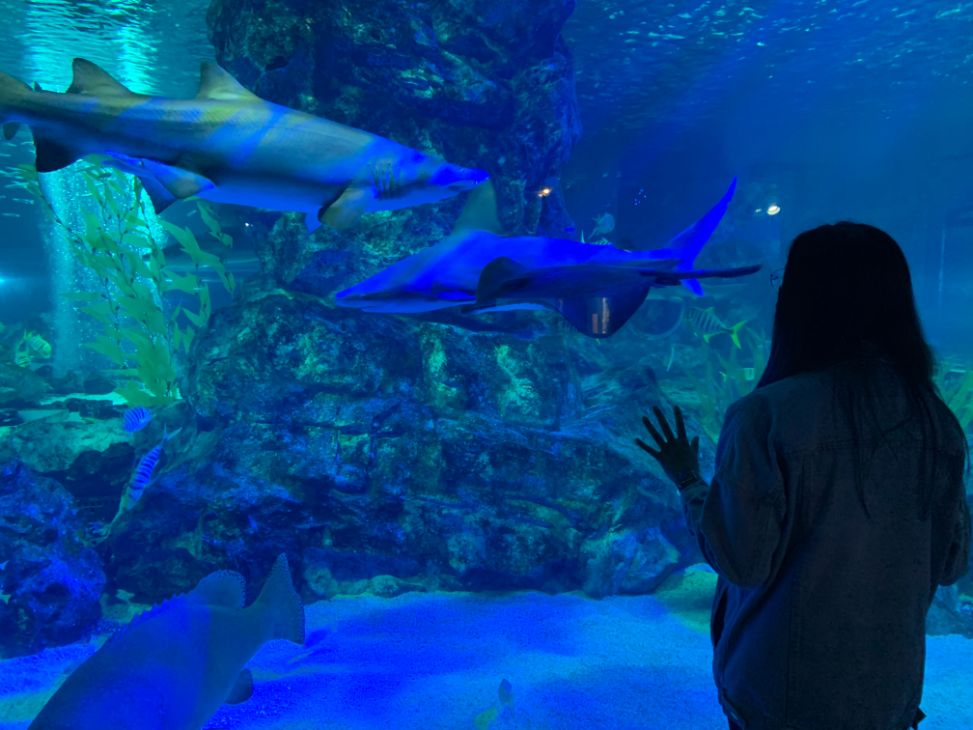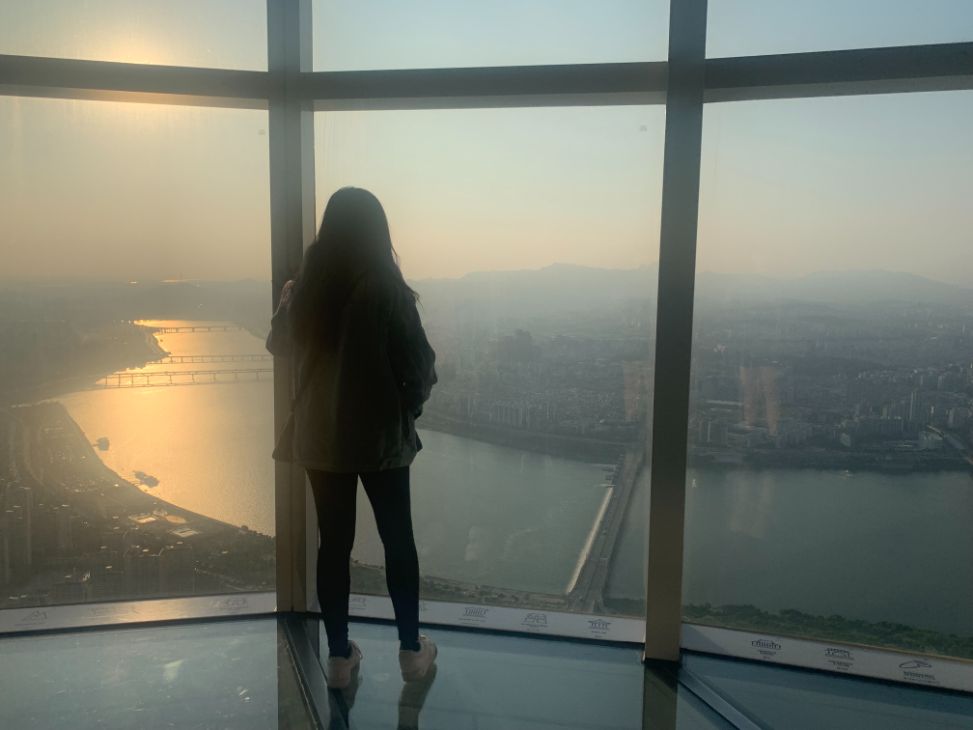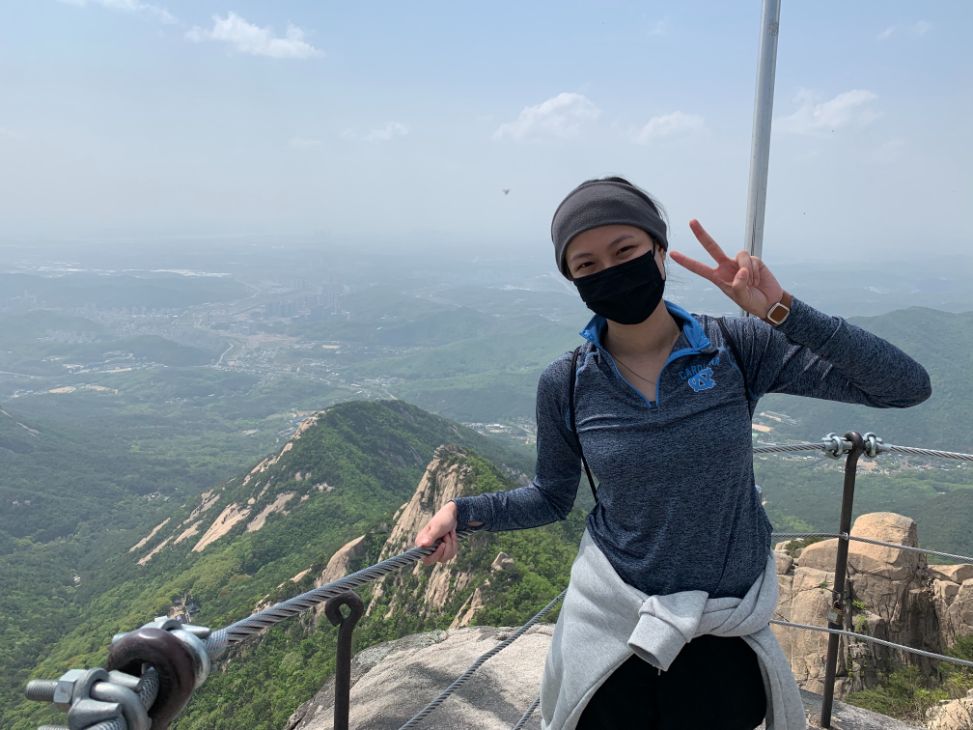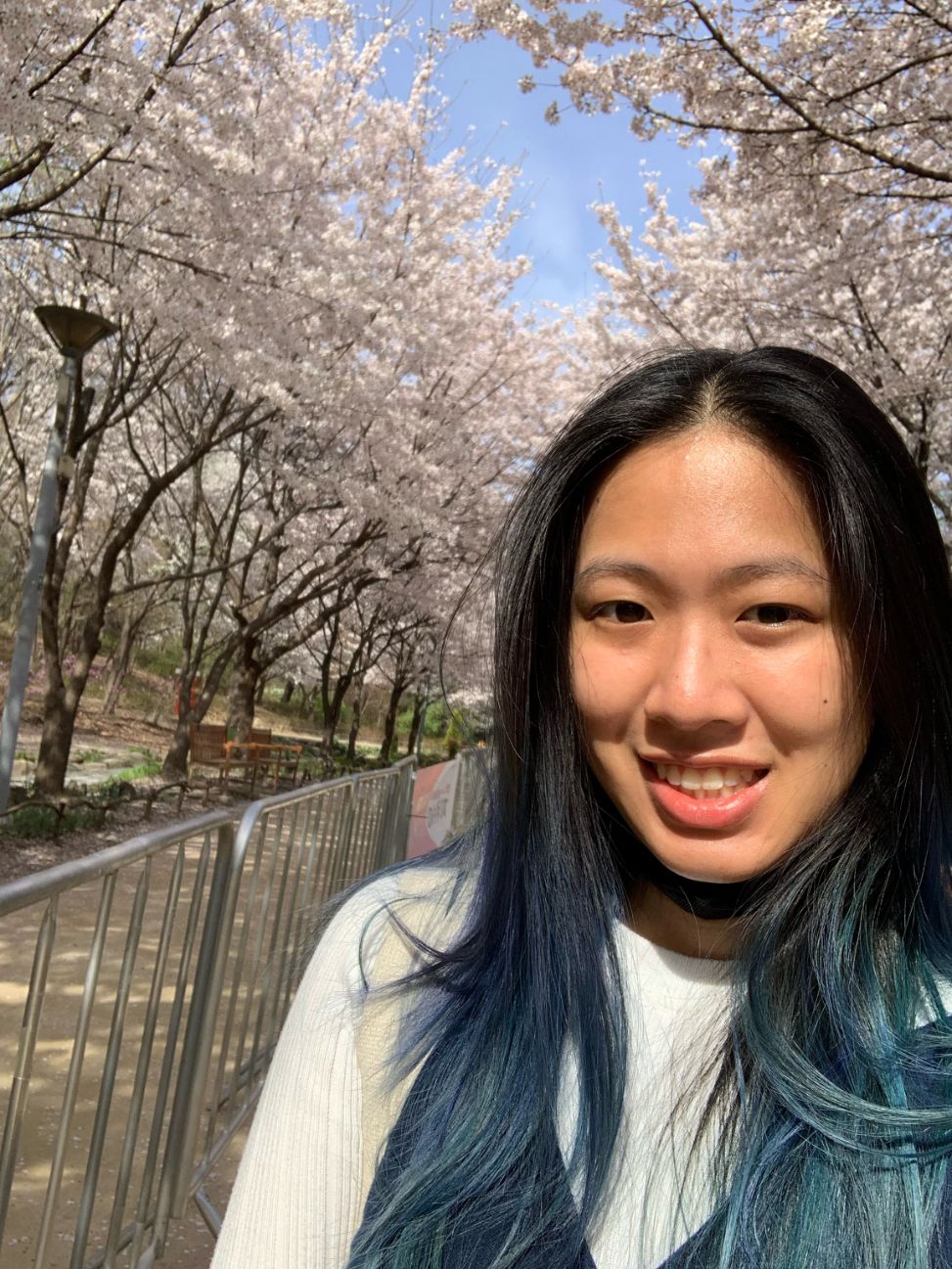April Bhudasuwan
About My Study Abroad Program
Major/Minor: Psychology BA & Asian Studies BA (Interdisciplinary Concentration)
Program: Korea University (Exchange)
Location: Seoul, Korea
Email: april9@live.unc.edu
Term: Spring 2021
Why did you choose to study abroad and how did you select your program?
Originally coming into UNC freshman year in 2018, I had no desire to study abroad anywhere. But then in Fall 2019 when I was taking KOR 101, the Korean language teachers shared a new study abroad program that they would lead during the summer of 2020 where they would teach KOR 203 and 204. Falling in love with and learning more about the country, language, and culture for that past year, I was interested in applying for the program. I applied and was accepted and I was so excited to go to Korea. However, due to the COVID-19 pandemic, the program was sadly canceled. After that, I decided I still wanted to study abroad in Korea sometime before I graduated but now it had to be under a different program. I wanted to practice and immerse myself in the Korean language and experience the culture and history I was consuming and learning in actual country and not through a screen or book. Luckily, the Study Abroad Office shared during the summer that they would be opening applications again for studying abroad in Korea at a number of Korean universities in the spring 2021 semester. I tried again, applying specifically to Korea University since that was where UNC Summer in Korea was supposed to be hosted at, and was accepted!
What did you learn about yourself?
I learned just how independent I am and how capable I am to travel abroad alone. I had only traveled outside the US a couple times to Thailand with my family because that is where all my family lives as a child of Thai immigrants. Because I went with my family, I was guided through every activity with no troubles as my parents just relayed any information or plans to me in English. I didn't have to plan what to do or have to communicate with any locals. So I was a little nervous traveling abroad for the first time without my parents. But I quickly discovered how capable I was to travel alone, being able to communicate with Koreans either in English or the Korean I knew from a couple years of learning. I made my own plans and figured out how to get there and participate in them. I was able to fix my own problems related to my travel and while staying in the country. I now feel confident to say that I can travel independently again in the future and if not independently, I could be able to help guide whoever else I travel with.
What is one of your favorite memories from your program?
I think one of my favorite memories during my time abroad was being able to meet so many people from around the world living in an international students' dorm. Not only was I learning more about the culture, language, and history of Korea, the country I was living in, but I was also able to learn the same things about Spain, France, Mongolia, Russia, Taiwan, etc. from other students in in-class discussions or through meeting them in common rooms. Sometimes after a long day of traveling around Seoul or taking classes, I still was able to have hours of conversation with some other visiting students on my floor who would become my friends. I am glad to have friends from various places around the world who I hope to keep in touch with. If I travel abroad again, I hope I could meet with them in their home countries and they could guide me around. And I would happily do the same if they ever visited America.
What advice do you have for future study abroad students?
You may sometimes face uncertainties when you are abroad, no matter how much you think you are prepared to live in a new place. Traveling and studying abroad in the midst of the COVID-19 pandemic definitely made me face a lot of uncertainties. Will I even go abroad? Should I go during a pandemic? What can I do there? However, I was still able to go and have a great experience because I was able to adapt. There were some aspects of my study abroad that weren't preferred and there were some disappointing situations I experienced that were unavoidable. But being able to adapt and find alternatives or make most of bad situations helped my study abroad experience still be enjoyable and life-changing. Along with adapting, I would encourage you to not be afraid to ask questions or help. I sometimes was left wondering if I could have, if I should have, or how I could have done something at certain places or in certain situations during my time abroad even though I had heavily researched preparing for my trip overall. Looking back, these uncertainties probably would have been easily answered if I had asked questions. Overall, I think being open to adapt and not being afraid to ask questions will help ease any uncertainties you have and face.
How do you identify?
Student of color
Memories




